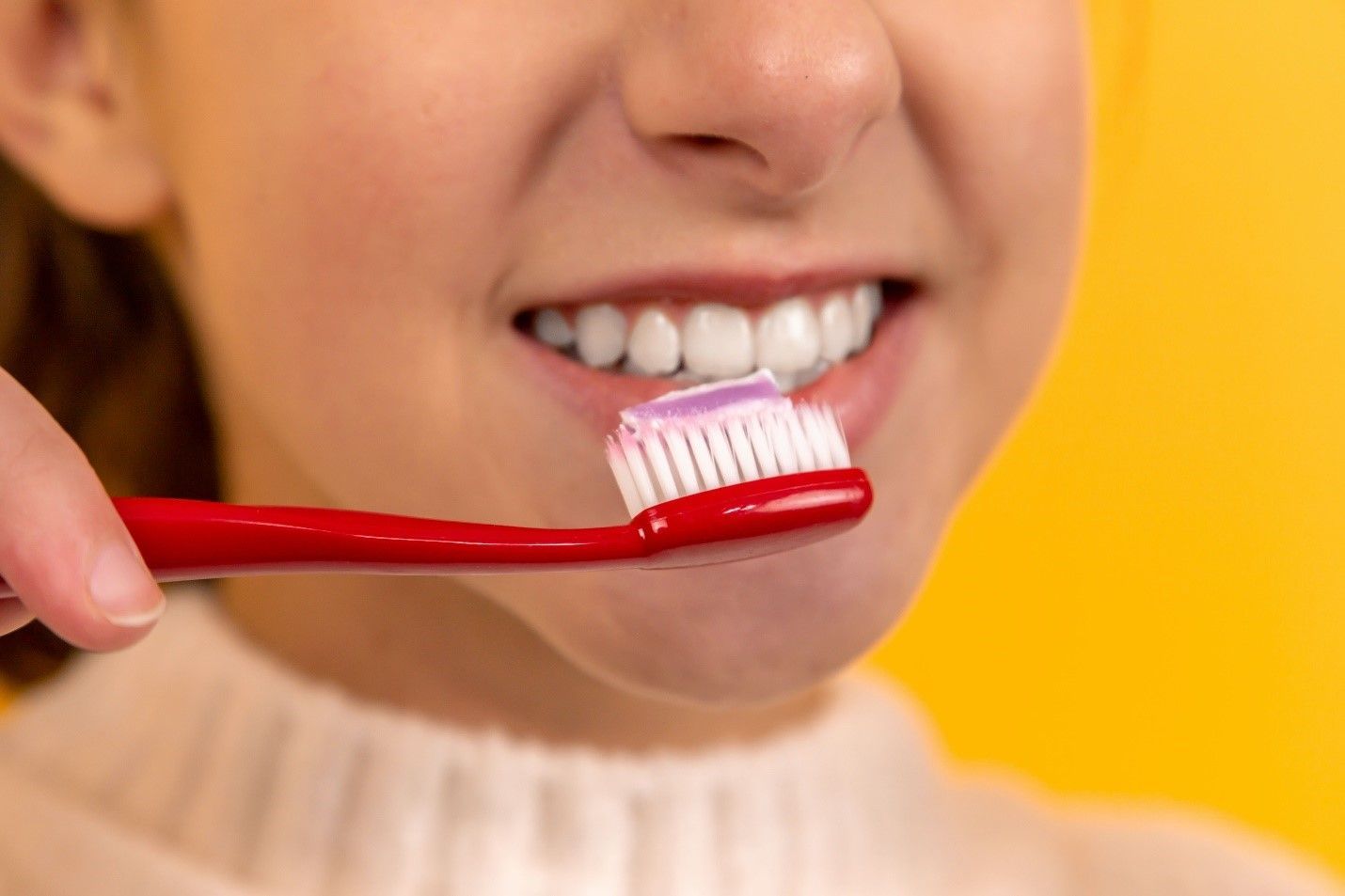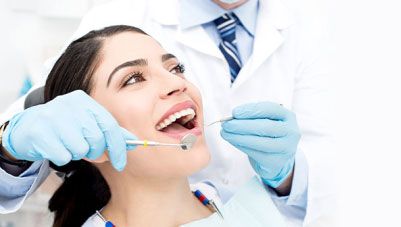
Advance Dental Care: 10 Tips for a Happy Patient Experience

When you go to the dentist, you probably have a few expectations. You might hope for a pain-free experience, quick visits, and healthy teeth. But what if your experience falls short of these expectations? Advance Dental Care wants to make sure that your dental experience is as positive as possible. To do this, they offer a few tips for keeping your patients happy. Here are ten of Advance Dental Care’s top tips for having a happy patient experience:
1. Be organized and prepared. Make sure you have all of the necessary paperwork ready before you visit, so there are no delays in getting started.
2. Treat your patients with respect. Be polite and respectful when speaking to them, and show that you care about their well-being.
3. Keep the environment clean and healthy. Keep the examination rooms clean and free of anything that could be harmful to patients, like hazardous chemicals or sharp objects.
4. Offer comfortable seating options. Make sure the chairs are comfortable and supportive, so patients can stay relaxed during their visits.
5. Offer relevant information about dental treatments and health conditions. Let patients know what kind of treatment is best for their specific situation, and how it could benefit them
Understand What Dental Implants Are
Dental implants are a newer form of dental treatment that use a metal screw and plates to replace missing teeth. They are considered more reliable and durable than traditional dental braces, which can sometimes come loose over time. Implants also offer other benefits, such as a more natural appearance and less need for maintenance. If you are considering dental implants, there are a few things you should understand before your appointment. First, research the different types of implants available and find one that is right for you. There are two main types of dental implants – abutment (fixed) and implant-supported (dynamic). Abutment implants are fixed into the jawbone where they attach to existing teeth; implant-supported implants sit in the jawbones between the teeth and rely on screws to hold them in place. When choosing an implant, be sure to consider your dentist’s experience with this type of treatment. Ask if they have any recommendations for implant surgeons in your area or if they can provide you with contact information for patient reviews or blog articles about the best practices for dental implant surgery. Another important question to ask is whether you’re a good candidate for dental implants based on your oral health history. If you have significant gum disease or any other tooth issues, your dentist may recommend against having implants placed in your mouth. If this is a concern for you, talk with your dentist about what options may be available to you. Finally, be prepared to
Be Aware of Your Insurance Coverage
1. Be Aware of Your Insurance Coverage One of the most important things you can do for your dental care is to be aware of your insurance coverage. Make sure to ask your insurance company about any pre-existing conditions or limitations that may apply to your coverage. Advance Dental Care offers a variety of payment plans that can fit almost any budget, so be sure to ask us about what options are available to you.
2. Request An Apology Letter If You Are Unhappy With Your Services If you are unhappy with the services you received from our team, be sure to request an apology letter. This will help ensure that future patients know that we are committed to providing the best possible care. We want them to know that no matter how extensive their dental needs may be, we will always make sure they are happy and satisfied with their treatment experience.
3. Bring A List Of Questions To Your Appointment Before your appointment, make sure to bring a list of questions so that we can better understand your needs and expectations. This will help us provide the most optimal dental care for you and minimize any potential surprises or problems during your visit.
Ask Questions and Get Answers
When choosing a dentist, it’s important to ask questions and get answers. Here are some tips for having a positive dental experience:
1. Make a list of your concerns. Before your appointment, jot down any questions you have about the dental procedure or treatment that you are considering. This will help ensure that you have adequately addressed all of your concerns before your visit.
2. Arrive early for your appointment. This will give you time to chat with the dentist and answer any questions they may have about your case. It can also allow them time to review your records and assess the situation more thoroughly.
3. Bring a friend or family member along to appointments if possible. This way, you can receive support and feel less intimidated during the visit. Plus, they can offer invaluable feedback on how the appointment went!
4. Be outspoken about any discomfort that you feel during an appointment. If something feels wrong, speak up! dentists are trained to address any issues promptly and professionally.
Make an Appointment Ahead of Time
When you make an appointment with your dentist, please be sure to let them know if you have any dietary restrictions. Many dental offices now offer vegetarian or vegan menus and will work with you to create a treatment plan that is tailored to your needs. You should also schedule your appointment at a time when the office is busiest. This way, you can avoid long wait times and enjoy the personalized service that dentists are renowned for. Finally, always bring a copy of your medical insurance information with you when making an appointment. In many cases, the dentist may be able to bill your insurance company directly for services rendered.
Get Proper Dental Hygiene
Proper dental hygiene is one of the most important aspects of good dental care. Not only is it essential for preventing oral diseases, but it also helps keep your teeth looking their best. For dental care, tips visit BK Health. Here are some tips to help you maintain good dental hygiene:
1. Brush and Floss Every Day: The most basic rule of oral hygiene is to brush and floss every day. Not only will this help clean your teeth and gums, but it will remove any plaque or bacteria that may be building up on your teeth. If you have trouble brushing and flossing correctly, ask your dentist or hygienist for help.
2. Avoid Smoking: Smoking increases the risk of tooth decay by damaging your enamel and causing gum disease. If you smoke, try to quit as soon as possible to improve your dental health.
3. Eat a Healthy Diet: One of the best ways to prevent tooth decay is to eat a healthy diet full of fruits and vegetables. This will help reduce the amount of acid in your mouth which can damage tooth enamel over time.
4. Use a Water Bottle To Help Limit Food Waste: Eating leftovers or packing too much food for lunch can lead to excess waste that ends up in our garbage cans or oceans – creating problems like global climate change and marine debris ingestion syndrome (MDIS). Instead of throwing away food, try using a water bottle to limit how much food you eat in one sitting. This way, you
Brush and Floss Properly
Did you know that brushing and flossing not only help prevent oral cancer but also promote healthy gums and teeth? Here are some tips to help make sure your dental care is as comfortable and effective as possible: -Start by brushing your teeth twice a day with a soft toothbrush and fluoride toothpaste. Use circular, back-and-forth strokes across all of your teeth. Be sure to use a light grip when brushing so you don't damage your teeth. -After brushing, rinse your mouth with water for at least two minutes. This will remove any debris from your toothbrush, and it will also help neutralize the fluoride in the toothpaste. -Flossing is even more important than brushing! Use a thin piece of floss (less than 12 inches) to reach between your teeth. Make sure to keep the floss tight against your teeth as you floss, and be gentle when removing excess material. These simple tips can help keep your smile looking great - so please remember to brush and floss properly every day!
Avoid Tobacco and Alcohol
If you're looking to improve your dental care experience, avoid tobacco and alcohol. Not only will they impair your ability to think clearly, but they'll also make it difficult for the dentist to provide quality care. If you do choose to consume these substances, try to limit yourself to moderate amounts. Also, be sure to let the dentist know if you're struggling with any of these issues so that they can provide appropriate assistance.
Protect your Teeth from erosion
To protect your teeth from erosion, follow these tips: Swish water and toothpaste around your mouth for two minutes. Spit the suds into a sink or toilet and rinse off your toothbrush. Brush all of your teeth, using a circular motion. Floss once a day. Limit sugary drinks and eat a balanced diet that includes plenty of calcium and Vitamin C. Drink enough water to keep your mouth moist.
Know the Warning Signs of Oral Cancer
Know the Warning Signs of Oral Cancer If you are experiencing any of the following signs, it is time to see your dentist. These warning signs may indicate that you have oral cancer and should see a healthcare professional as soon as possible:
1. A change in your chewing or swallowing habits- If you have been chewing more slowly, swallowing harder, or having trouble eating due to pain, this could be a sign of oral cancer.
2. A change in the color or shape of your mouth- This could be an indication that there is swelling or redness in your mouth as a result of cancer.
3. Sores that won't heal- If you experience sores that don't heal even after using over-the-counter antibiotics and painkillers, this may be a sign of oral cancer.
4. A persistent bad odor- This could be an indication that there is gum disease present which can lead to a bad smell from where the gum meets the teeth.
Appreciate the creator